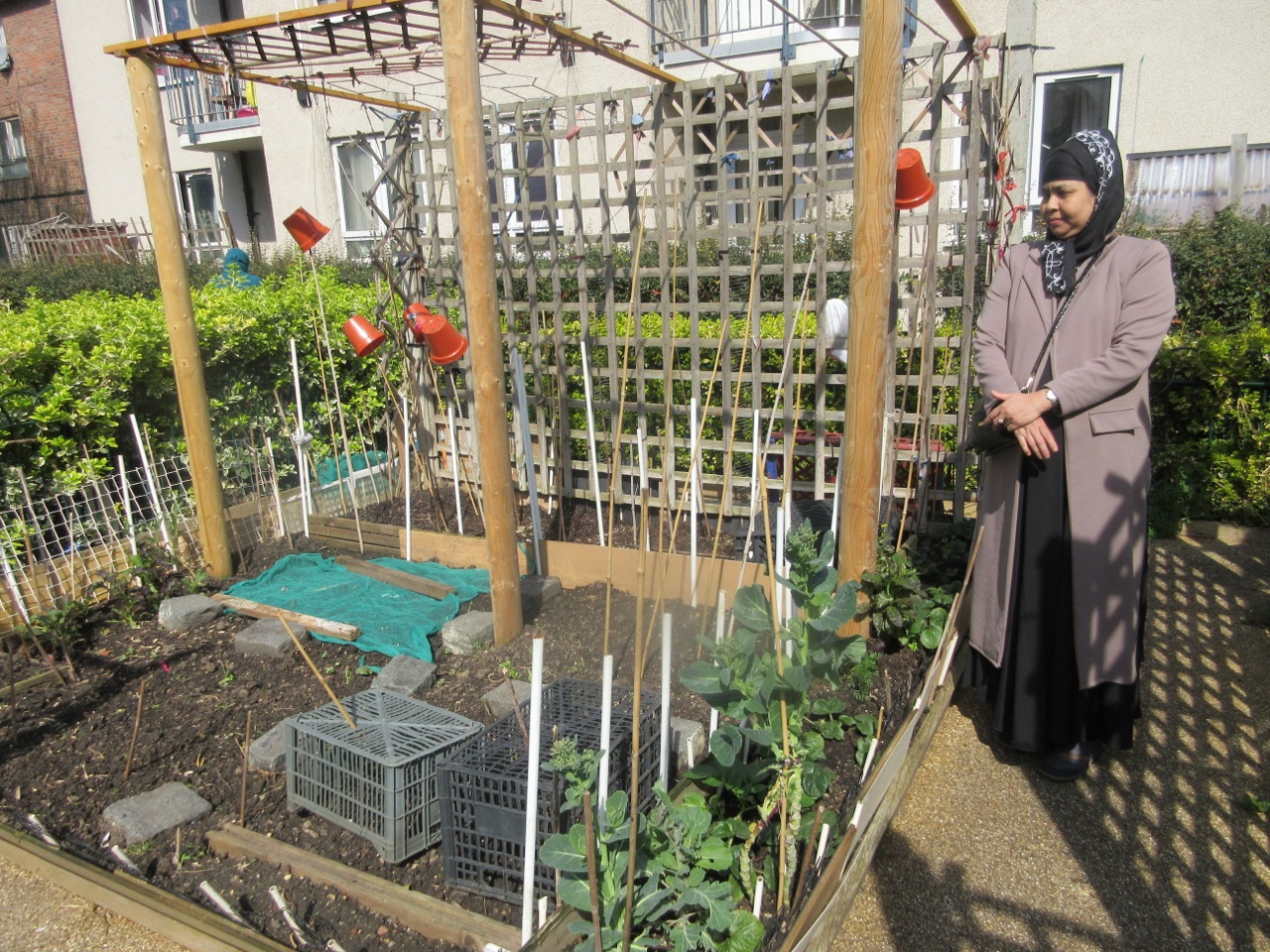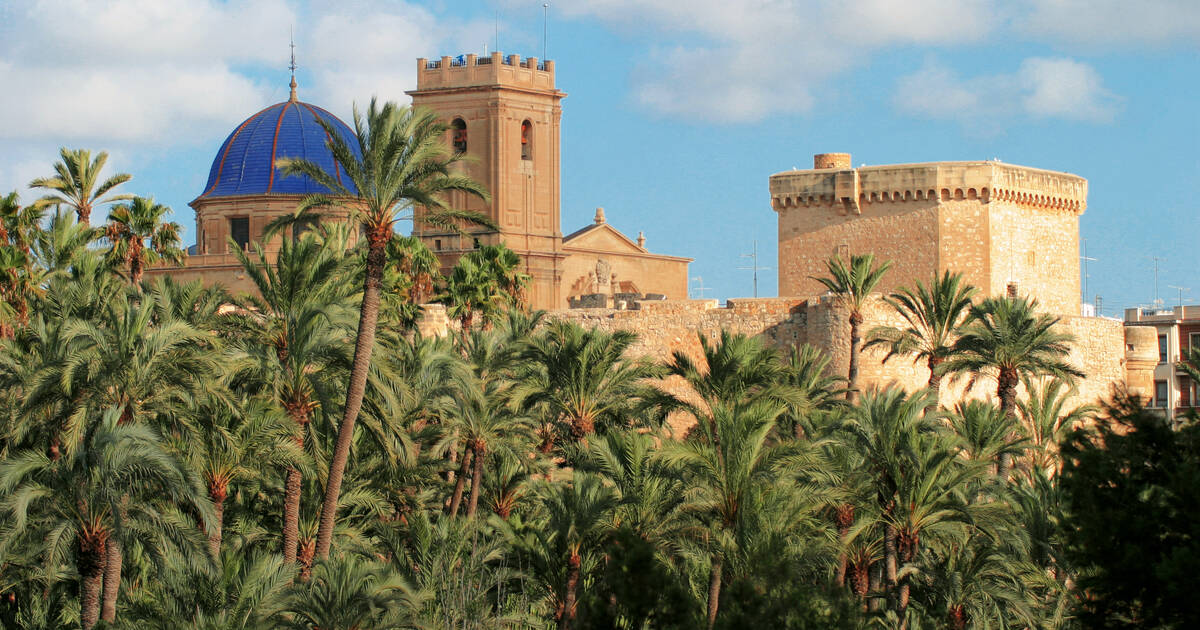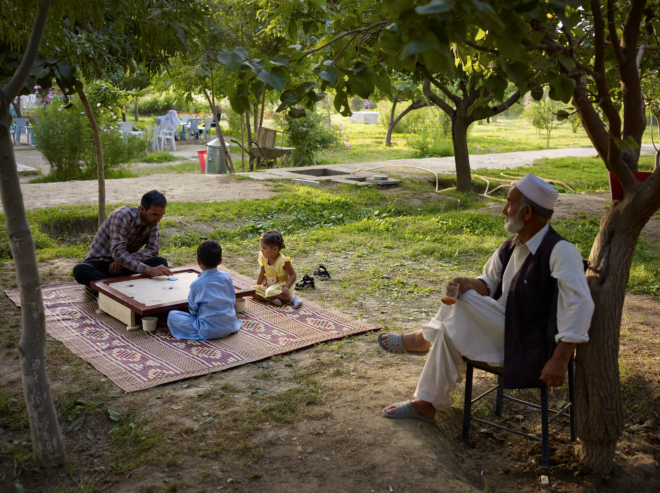Can gardens really help promote environmentally friendly behaviour amongst the Muslim community? Mark Bryant from Cardiff University who researches Islam and gardens, says they can
There’s nothing like being with nature to help clear your mind and when the weather is as lovely as it has been recently, who can resist spending a couple of hours in the garden? But the humble garden should not be overlooked. According to researcher in the UK, the garden can be a powerful tool in inspiring more climate-aware behaviours.
Following my trip to Andalusia and introduction to some stunning Islamic gardens, I looked into the role gardens can play in promoting environmentally-friendly behaviour.
I instantly stumbled across a little piece of research by Mark Bryant and Sophie Gilliat-Ray based in the UK who state that “Gardens built reflecting Islamic traditions have been shown to have the potential to educate and inform people about environmental issues.”
I caught up with Mark Bryant to find out more about this research and the green Muslim community.
Aburawa: Why do gardens play an important role in Islam and Muslim culture?
Bryant: There are some 166 references to gardens in the Qur’an. These include references to earthly gardens which resemble an oasis or palm gardens found in the Middle East today. Both Eden and Paradise are described in terms of a garden and ‘jannah’ means both garden and paradise in Arabic.
This love for the garden is reflected in the traditions of Muslim poetry, literature and carpet design. And much of what is described as Arabesque design incorporates both realistic and stylised plant forms. In terms of the environment, in addition to respecting nature as part of creation many Muslims regard themselves as having been entrusted with the task of acting as khalifah, or vice-regents, of earth. ‘Later We made you their successors in the land, to see how you would behave’ (Surah 10.14).
The research that you carried out on Islamic gardens in the UK showed that Islamic gardens didn’t generally deal with environmental issues and sustainability. Do you think that this could change in the future?
I feel it is important to draw a distinction here between the traditional formal Islamic gardens and gardens reflecting Islamic traditions. The traditional Islamic garden is a specific form consisting of specific formal elements. On the other hand gardens reflecting Islamic traditions can include gardens which incorporate Islamic influences outside of those found in the traditional form such as good Islamic environmental ethical practice.
While it is true that traditional Islamic gardens were not necessarily concerned with issues such as biodiversity, conservation and sustainability it can be argued that they demonstrated the importance of the natural world in Islam. If we use the definition of gardens reflecting Islamic traditions we find examples of gardens being built using Islamically inspired environmentally-friendly practice.

Wapping Woman’s Centre garden in the UK
For example the community garden run by Wapping Woman’s Centre in Tower Hamlets has had a huge impact on changing people’s behaviour around recycling, composting and a general respect for the environment.
As well as research into Islamic gardens, you have looked into the scale of environmental concern British Muslims have. What kind of state did you find the environmental movement amongst British Muslims in the UK?
I think the following quote from the conclusion of the paper we wrote for the Journal for the Study of Religion, Nature and Culture – Are British Muslims ‘Green’? An Overview of Environmental Activism among Muslims in Britain – best answers this question..
So, are British Muslims ‘green’? The answer is both ‘yes’ and ‘no’. Visit nearly any inner-city area in Britain with a large Muslim population and it is evident that the messages of conservation and environmental stewardship that Muslim environmentalists derive from the Qur’an and Hadith are not reflected in the actual behaviour of many British Muslims.
Unkempt urban areas often reflect socio-economic deprivation and a lack of engagement in activities that promote environmental conservation. On the other hand, the findings of our research also demonstrate the emergence of a new generation of British Muslim environmental activists who are using their energy and knowledge to argue that being a ‘good Muslim’ must involve environmental responsibility.
In the Middle East, there are real concerns about the growing scarcity of water. As such, do you think it is justifiable to be building gardens which rely heavily on water?
While I am aware of plans for gardens in the Middle East that are environmentally irresponsible this need not be the case. In fact, within the area of water management, Islamically inspired gardens have the potential to stand as examples of traditional and current good practice in water management.
Traditional Islamic gardens have historically served as showcases for effective water management in water poor areas – this was particularly the case in gardens in Iran.
Look to the Palmerals of Elche
The Palmerals of Spain or Palm Grove of Elche is the generic name for a system of date palm orchards in the city of Elche, Spain. It was planted in Roman times and underwent modifications in the medieval period under Islamic and Christian rulers. The Roman empire introduced water management techniques to Elche, but the 10th c. are fed by an 800-year-old water management system developed by the Moors. These systems were in turn studied by French and British engineers to be used in their colonies in Africa.

Palmerals of Spain: With over 70,000 date palm trees in the formally designated palmeral itself and up to 200,000 in the general area around Elche, this ancient palm grove in Spain is really magnificent. It’s one of the largest in the world, and there aren’t any other sprawling groves like it in Europe. It’s also the northernmost palm grove of its kind.
In September 2011, the tenth International Permaculture Conference and Convergence, IPC10, which was held in Jordan around the theme of water. During the conference, projects in the Jordan Valley and around the Dead Sea using permaculture, regenerative agriculture and Islamic environmentally-inspired designs were highlighted as a positive response to the growing water crisis in the region.
So the Islamic environmental ethic works very well with the currently growing Permaculture movement. In addition many of the traditional methods of water management used in the Middle East represent good examples of effective Permaculture design.
Finally, I think there is potential for palm gardens to be used as an alternative to less sustainable green spaces currently being built in the region.
___
The Islamic gardens research was commissioned by BGCI and was supported by the Islam UK Centre at Cardiff University.
For more on environmental issues in the Middle East see:
Water Scarcity Leads More to Peace Than War (INTERVIEW)
MENA Is Changing Drastically & NASA Has The Picture To Prove It
The Weird Science of Pedestrian Behaviour Might Help Hajj





Fantastic!
Hands down for the lady who started her own ‘green revolution” in Kuwait City. I was in Kuwait for three weeks in Jan-Feb 2013; It was dry wintery cold but I was informed that summer heat will feel like hell on earth with its wind with sand in your face.
So much wealth and opulent structures in Kuwait City including family home buildings which look ten times better than the Hollywood millionaires’ homes. So many villas with upto five expensive cars at the driveway and material inside the homes are all imports each costs four times what it would cost where it was made at Italy, Turkey, Germany, France and elsewhere.
I kept thinking some of that wealth could be directed at something wisely chosen and worthwhile for the future generations of Kuwait.
Teach the masses about the advantages of building small, manageable houses and perhaps start thinking about “going green” and converting some the empty areas in the city into vegetable gardens and other food producing projects and activities.
Kuwaiti government and rich individuals should start investing in their young people like this young woman who is growing her fruits and vegetables. For tertiary education, there is one national university; other schools need to be introduced, specially technical and world class vocational schools which money can buy. Learn from Malaysia.
UAE and other Gulf states (excluding Kuwait) are investing East Africa farmlands. The oil will run out in less than two generations. Kuwait needs real plans for its one million citizens and the service people who number more than three million residents.
Zaila
Bardera Polytechnic
The Prophet (peace be upon him) said: “Never does a Muslim a plant a tree or sow a crop and a bird, human being, or beast eats from it without earning the reward of charity.” [Sahîh al-Bukhârî (2320) and Sahîh Muslim (1553)]
Sounds like Muhammad, pbuh, was green all along! 🙂